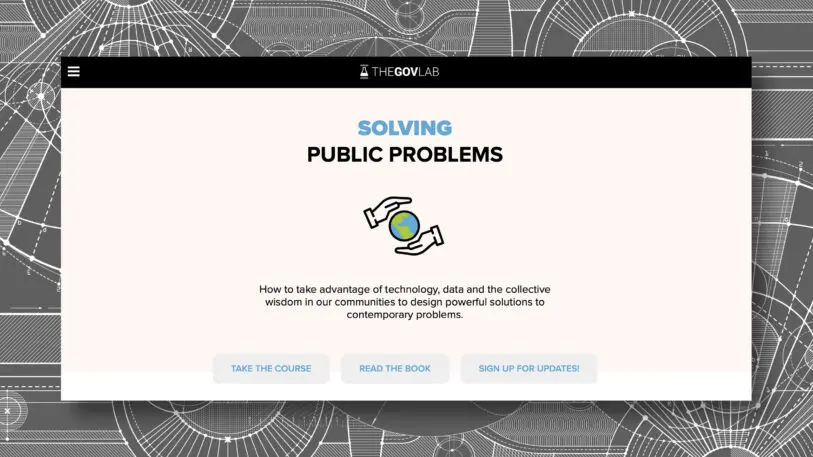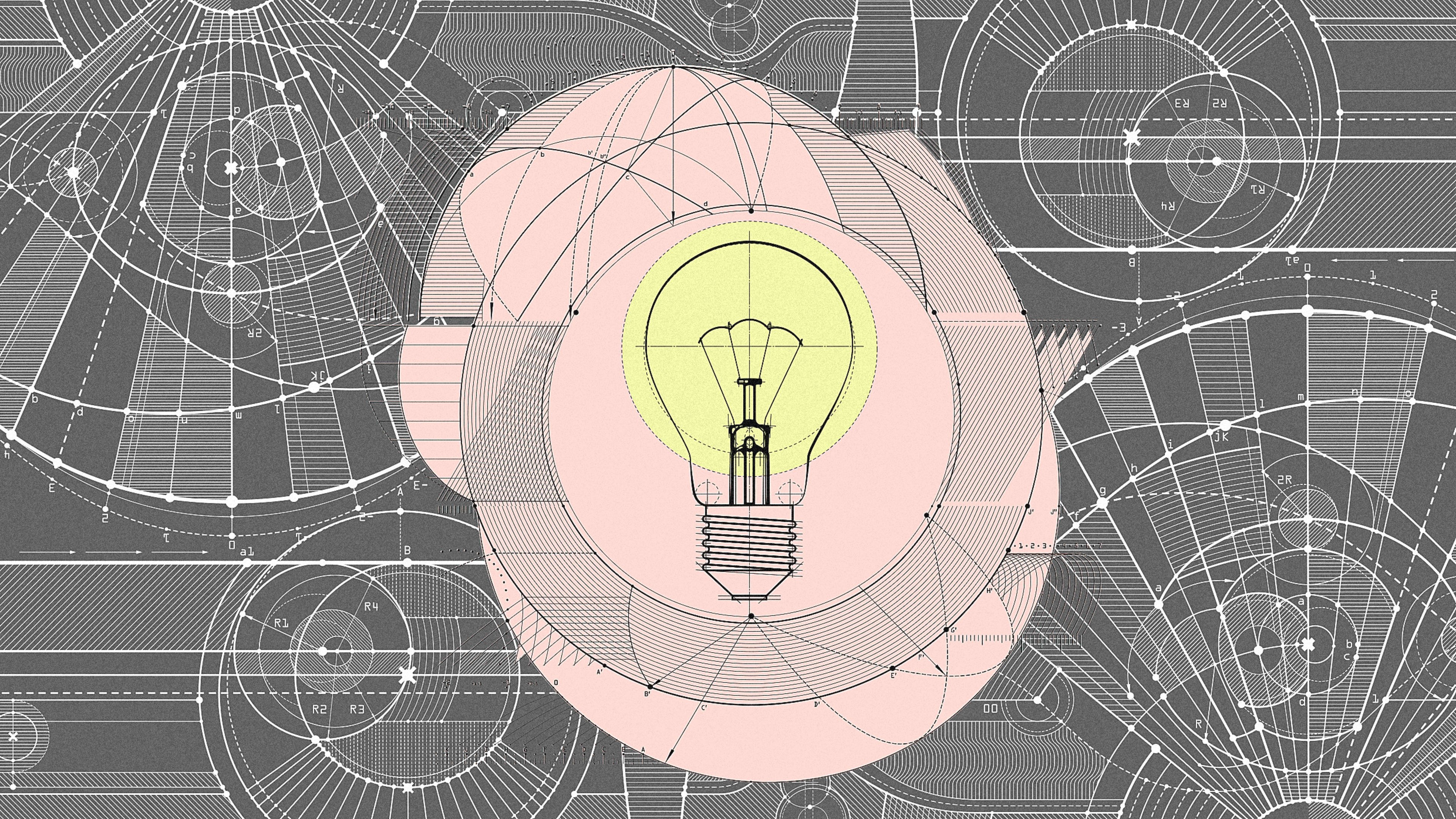From COVID-19 to climate change, and unemployment to global hunger, the world is rife with big, societal problems. A new, free online course wants to help you solve them.
The 12-week course, aptly titled Solving Public Problems, is based on a forthcoming book of the same name by Beth Simone Noveck, director of The Governance Lab at New York University (NYU), a center that focuses on how to improve people’s lives by changing the ways we govern. It’s also an extension of a course Noveck teaches at NYU and coaching she’s made available to both students and professionals.
Out of this class, Noveck’s students have started working on ways to address the lack of awareness around ADHD with teacher-specific training in Jordan, the issue of lack of voting rights for formerly incarcerated people in Massachusetts, and fixing infrastructure in Malawi by mapping rural roads. The problems graduates address range from the hyper-local—one student, noticing multiple car accidents outside of his window, worked with his town to change the traffic pattern—to the broad and systemic—like a student trying to improve opportunities for women in STEM.

Just like people have to learn how to run and grow a business, Noveck says, they have to learn how to take their passion about an issue to action. “It’s not enough to have passion,” she says. “Passion is great and it’s the ultimate driver, but how do I actually get something done? How do I take something from idea to implementation?” Especially now, amid the pandemic and in the wake of Black Lives Matter protests in 2020 and increasing climate concerns, she says she sees a hunger for this skill. “People really want to understand, ‘How do I go from from demanding change to making it?'”
The online course starts with the basics: identifying what are public problems, how to define them with data, and how to do research on an issue out in the field, since talking to those most affected by a problem is crucial to understanding it and equitably addressing it. The course consists of pre recorded lectures and interviews with changemakers including Audrey Tang, Taiwan’s first digital minister, and Ali Clare, cofounder of Re-coded, a program that teaches tech skills to Middle-Eastern refugees. There are also readings, interactive exercises, and worksheets, all built on real-world examples, and once it’s up and running there will also be an active discussion forum so students of the course can communicate with each other.
With the free, online course, Noveck hopes to “democratize access to this kind of learning,” she says, “and to help to create more people who are making a difference in the world.” The course title is a bit of a misnomer though, she admits. Some public problems are so deeply entrenched in our world that they aren’t solved so much as morph into something else. (If you feed the hungry, for example, the next issue is how to educate everyone.) There’s even a lecture included in the course on why you can never really solve public problems, but why we shouldn’t be discouraged.
Some of these issues may seem too overwhelming to tackle. You might think, how could one person try to solve climate change? But, again, Noveck says there’s no need to despair. The course will help students refine an issue down into one manageable, tangible part. “This is precisely about overcoming the despair that so many of us are feeling right now,” she says. “By encouraging people and supporting them to be able to figure out something they can do, even if it’s in their own backyard, that can make a real difference.”
Recognize your brand’s excellence by applying to this year’s Brands That Matter Awards before the early-rate deadline, May 3.
